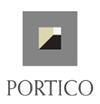About New Prairie Press
Open Access
New Prairie Press was founded by Kansas State University Libraries in 2007, joining a growing number of libraries in the world of open access publishing. NPP adheres to the principles of open access publishing as articulated in the Berlin, Budapest, and Bethesda declarations. In 2011, Provost April Mason added her name to the Berlin declaration on behalf of Kansas State University, adding our institution to an international list of over 500 universities, libraries, scientific institutes, and academic associations who pledge support to an open access paradigm.
Open access means offering online content to all readers with no financial barriers to access. The benefits of this publishing model are manifold, and the growing number of open access publications attests to the power of these ideals.
Scope
Publications from all disciplines - written, edited or sponsored by scholars affiliated with Kansas State University - are welcome at New Prairie Press (NPP). In addition to scholarly journals, NPP publishes conference proceedings, faculty and staff scholarly monographs, open access textbooks, and other special publications.
Editors interested in starting an open access journal or in digitizing and moving an existing journal to an open access model, or faculty and administrators exploring options for open conference proceedings or monographs should contact the Center for the Advancement of Digital Scholarship at .
Services offered by NPP
NPP offers a reliable full-spectrum publishing platform for journals, conference events, and monographs. NPP is powered by Digital Commons (DC) at bepress. DC manages any or all parts of publication, from submission to final publication and archiving. Editors and site administrators have the ability to define reviewer, copy editor, and other roles, as well as manage revision processes. NPP and DC staff are available for consultation regarding layout and design as well as troubleshooting.
Policies and Best Practices
Journals
Our Memorandum of Understanding (MOU) defines the partnership between NPP and journal editors. Editors of faculty-led or student-run publications should review the MOU and "Best Practices for Journals" prior to contacting us. Editors interested in digitization of archival issues of an existing print journal should contact us for additional information and to discuss the scope of the project.
NPP does not support ‘author pays’ models or article processing charges (APCs) for publishing.
Monographs
NPP invites queries or manuscripts proposals for our monographs publishing program. Authors or editors should review the Permission to Publish and Distribute Agreement and contact .
Conference Events
NPP seeks to publish full text conference proceedings and associated content. Please contact for information about using NPP Conference space.
New Prairie Press and Copyright
Unlike some commercial presses, NPP does not require authors to assign copyright to their publisher. As an open access press, we leave choices about copyright to our editors and authors, but strongly encourage them to consider carefully how they license their works to the scholarly world. In the absence of other considerations, we would recommend the Creative Commons Attribution-NonCommercial 4.0 International License (CC BY-NC 4.0).
Making Your Content Visible
NPP and DC leverage emerging technologies to bring scholarly publications to as broad an audience as possible. NPP participates in industry-standard discovery and preservation tools. All NPP journal and monograph content is included in the world’s major library catalogs and databases: OCLC WorldCat, ProQuest’s Summon, Ex Libris’s Primo, and EBSCO Discovery. Journals are preserved in the two leading preservation archives, CLOCKSS and Portico, which guarantee persistent access for the very long term. NPP is a CrossRef publisher, which means digital object identifiers are issued for every journal article, enabling better and persistent linking for citation, sharing and discovery.
NPP and DC also manage the process of getting journal content into key directories and indexes such as the Directory of Open Access Journals and/or Google Scholar, and will consult with journal editors concerning indexing in relevant disciplinary databases.
Monograph and conference events content are backed up daily under our agreement with DC; and DC uses a third-party archival service to secure all data.
Open access publications are uniquely positioned to reach the largest audience possible, which leads to a greater citation rate.
For More Information
Please direct all inquiries to the Center for the Advancement of Digital Scholarship at .

